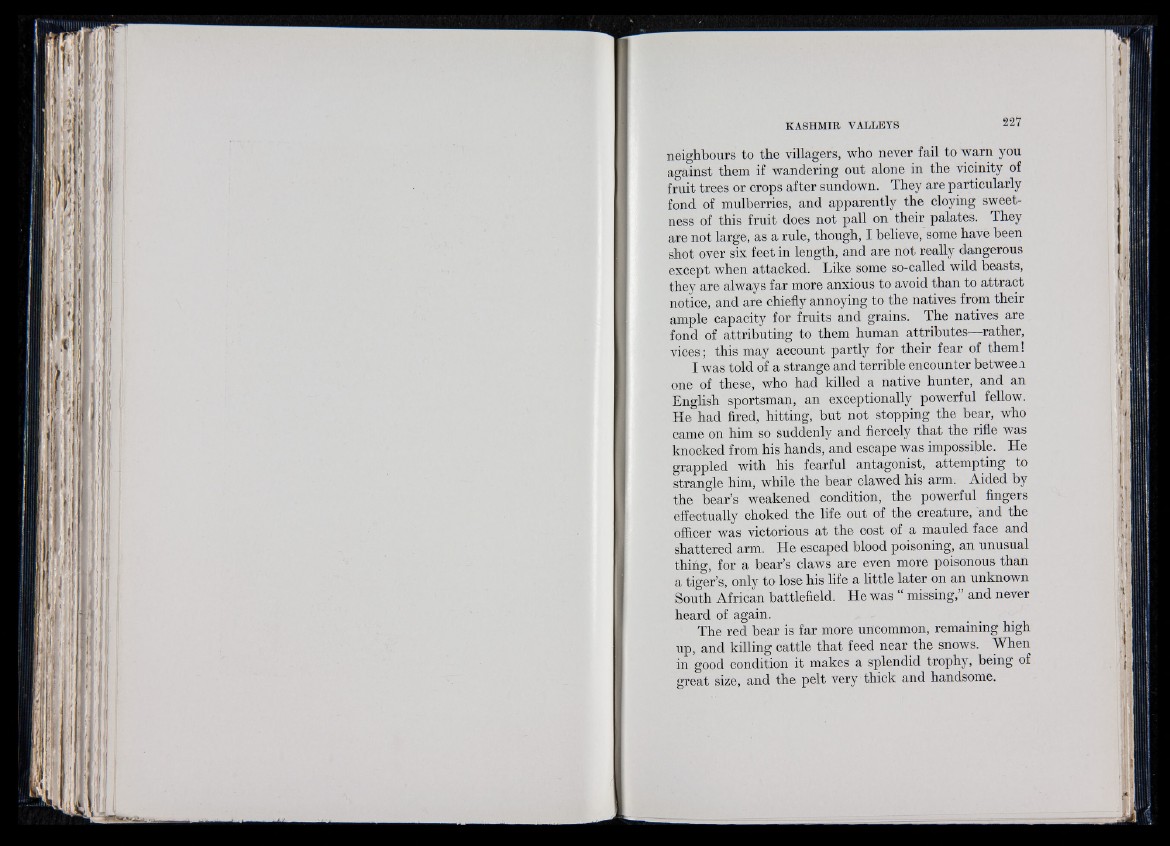
neighbours to the villagers, who never fail to warn you
against them if wandering out alone in the vicinity of
fruit trees or crops after sundown. They are particularly
fond of mulberries, and apparently the cloying sweetness
of this fruit does not pall on their palates. They
are not large, as a rule, though, I believe, some have been
shot over six feet in length, and are not really dangerous
except when attacked. Like some so-called wild beasts,
they are always far more anxious to avoid than to attract
notice, and are chiefly annoying to the natives from their
ample capacity for fruits and grains. The natives are
fond of attributing to them human attributes—rather,
vices; this may account partly for their fear of them!
I was told of a strange and terrible encounter between
one of these, who had killed a native hunter, and an
English sportsman, an exceptionally powerful fellow.
He had fired, hitting, but not stopping the bear, who
came on him so suddenly and fiercely that the rifle was
knocked from his hands, and escape was impossible. He
grappled with his fearful antagonist, attempting to
strangle him, while the bear clawed his arm. Aided by
the bear’s weakened condition, the powerful fingers
effectually choked the life out of the creature, and the
officer was victorious at the cost of a mauled face and
shattered arm. He escaped blood poisoning, an unusual
thing, for a bear’s claws are even more poisonous than
a tiger’s, only to lose his life a little later on an unknown
South African battlefield. He was “ missing,” and never
heard of again.
The red bear is far more uncommon, remaining high
up, and killing cattle that feed near the snows. When
in good condition it makes a splendid trophy, being of
great size, and the pelt very thick and handsome.